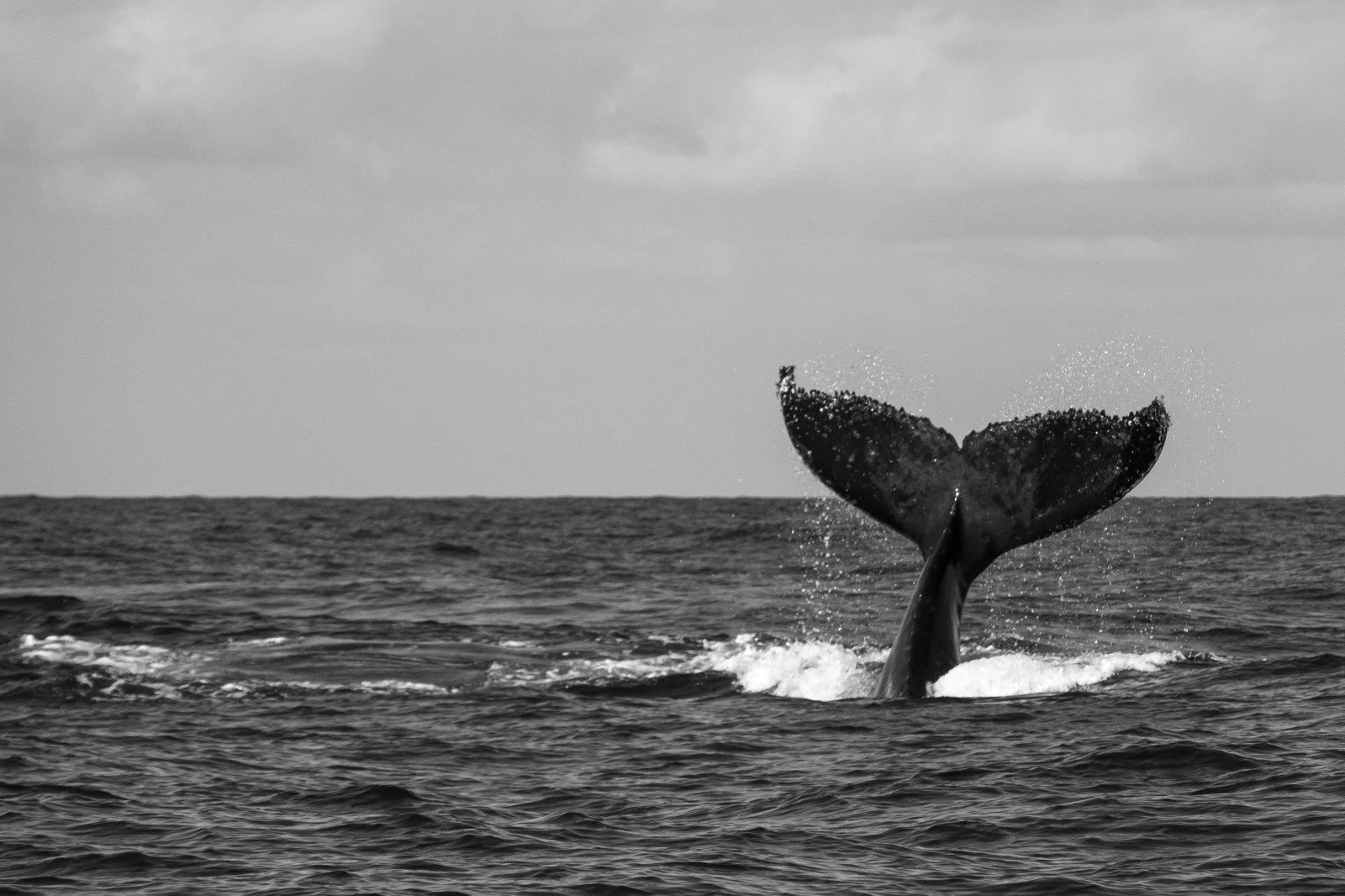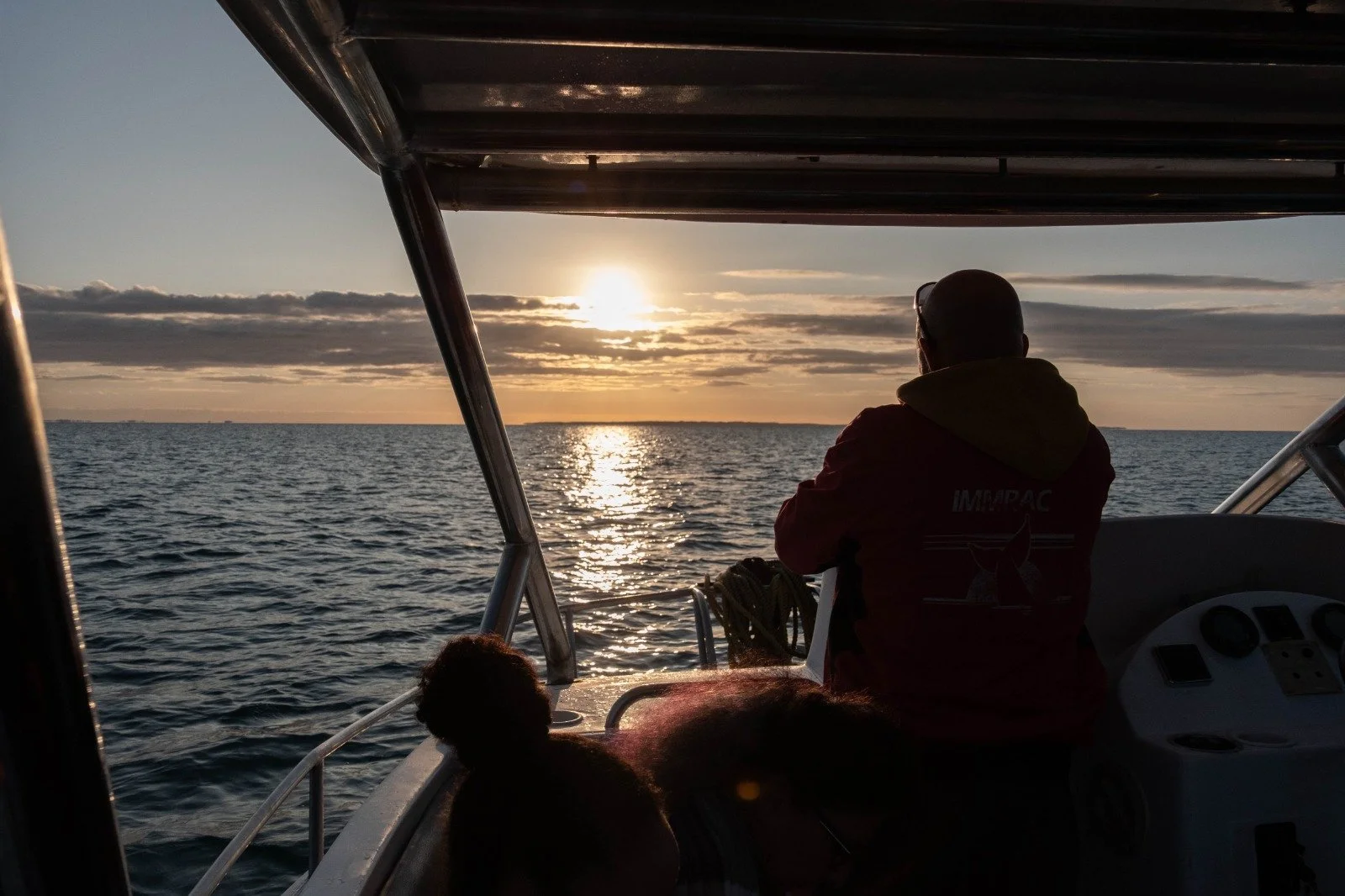A whales journal 2
by Anat Shushan
They have been doing this long journey of thousands of kilometers from Antarctica and back for hundreds of years, the very same journey.
Every year, at the same time at the end of July, they arrive to Mozambique to breed, give birth and to take care of the “little ones” until the journey back home to Antarctica begins.
These are the Humpback whales. If to be more accurate, the pod called C1.
For the past two years, I got to fulfil a lifelong dream and join a research expedition on Marine mammals as a photographer and a research assistant. Very far from my usual street photography passion, but my love for these breathtaking creatures is even stronger than that. And…just like in the street, while taking pictures of wild animals- if you don’t get what you want, a second later it’s gone. You need to be focused and alert every second because you can’t predict when a whale will jump right next to the boat. This is something you don’t want to miss!
This expedition of an amazing organization called IMMRAC, Israel Marine Mammal Research and Assistance Center, led by Dr Oz Goffman, sets course to the small city of Vilankulo every August for the past five years to study the cetaceans of the unique Bazaruto Archipelago.
This study has a few important Goals. The main one is to study and document the C1 population, observe the animal’s behaviours, identify specific animals from previous seasons, record their unique singing underwater and learn as much as possible about the mother-claves connections.
Another important purpose is to provide recommendations to the Parks Authorization in Vilankulo as to whale watching tourism which hasn’t really started yet, but in a few years, it will.
Vilankulo is still pure. It hasn’t been flooded by tourists yet, the people and nature of this amazing place are still authentic and untouched and so are the whales. They have a quiet and safe environment to do their business without many interruptions, as it should be. But soon this will change. Although they are the most delicate creatures on earth, they are huge! They get to 18-meter-long, each side fin gets up to 5 meters. They have the biggest fins in nature. And let us not forget, they are wild animals. If people will not respect their space and know how to behave with them, it will not end well. Not for the whales and not for us humans.
The Humpback whales stay in Mozambique for about three months. During the whole time they don’t feed at all, they are busy with so many other things.
In most the whale population there are couples of mothers and babies. Whales give birth to only one baby each time, once in a couple of years. The babies nurse from their mothers for a few months. During this time, they swim together and the mothers teach their babies important whales skills and behaviours.
We got to observe hundreds of small pods of mothers and babies, sometimes with an escort male (which is not necessarily the father). We got to see a couple of days’ baby whales swimming next to their mother, we got to see a two week old baby practising breaching nonstop for half an hour, and we saw endless whales breaching, tail and fin whipping. You name it, we saw it. And photographed it.
There were days in which our boat was surrounded with mixed pods of tens of whales and dolphins. A sight that no words can describe. This is experiencing nature at its most overwhelming power.
Sometimes we had pods of hundreds of dolphins of various kinds escorting our boat. Imagine that…dolphins as far as the eye can see.
One of the things we do there is to record underwater sounds and the singing of the whales. What can I say? Listening to whale sounds on the internet is one thing, but listening to whales while they are under your boat- that’s a totally different thing. The connection you feel to the animals in moments like this is overwhelming! You want this to never end.
We spent very long days out in the ocean after waking up very early in the morning, but no matter how many hours we spent out there and how many whales we saw, it was never enough.
Speaking of mornings…the sun in Mozambique rises in the ocean. In Israel, where I live, the sun sets in the ocean.
What can be more perfect than starting your days watching the sunrise in the ocean?
This year the expedition spent a month in Vilankulo. And just like last year, now that I’m back, I’m counting the days till I go back again next year to that untouched piece of heaven. That special place where people are the nicest I’ve met, nature is just breathtaking, whales and dolphins can just live their lives and children’s eyes go straight into your soul. But that, on another story…


















